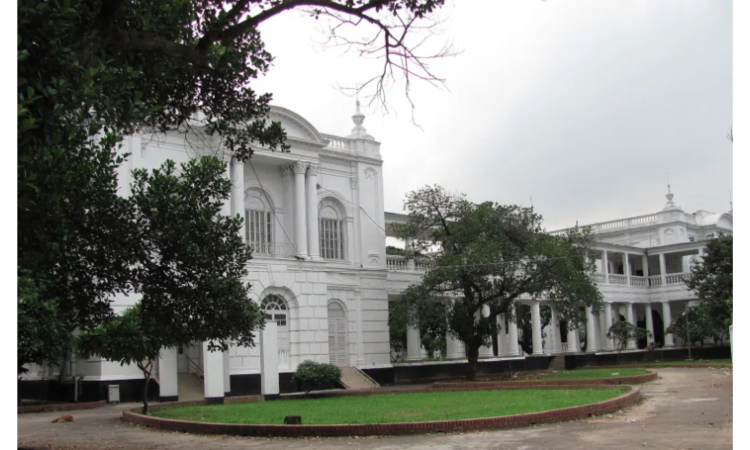Editorial: Delicate balance in ties with Dhaka
Applause broke out in the courtroom as the death sentence was pronounced upon the former Prime Minister and her Home Minister Asaduzzaman Kamal, both now in exile in India.

Bangladesh International Crimes Tribunal (Photo: International law blog)
• The death sentence pronounced upon Sheikh Hasina by Bangladesh’s International Crimes Tribunal (ICT) was not entirely unexpected. As the former Prime Minister herself said ahead of the Nov. 17 verdict, it was a "foregone conclusion” that the “rigged” tribunal would find her guilty of crimes against humanity during the student uprising against her in June-August 2024. The intensity of hatred for her authoritarian regime is still strong countrywide, and the interim government that replaced her in Dhaka can only play along with the popular sentiment. With elections scheduled for February next year, Bangladesh is poised on the brink of chaos. Assuaging popular anger is a political imperative for Chief Adviser Muhammed Yusuf at this juncture.
The trial was quite a spectacle, as show trials always are. Verdict-day proceedings were telecast live even as self-claimed “revolutionary groups” strained the leash to demolish what’s left of the residence of Mujibur Rahman, the nation’s founder and Hasina’s father. Applause broke out in the courtroom as the death sentence was pronounced upon the former Prime Minister and her Home Minister Asaduzzaman Kamal, both now in exile in India.
The trial lacks credibility beyond Bangladesh. The UN, Amnesty International, Human Rights Watch and the International Crisis Group have all acknowledged that it lacked the rigour required of a trial for crimes against humanity. To begin with, the interim government did not take up Hasina on her willingness to stand trial at the International Criminal Court in the Hague. Instead, she was tried in absentia amid a surcharged atmosphere in Dhaka with state-nominated attorneys arguing for defence – but without access to resources, information or witnesses. Hasina has the option to appeal, but only if she returns to Dhaka and submits her petition within 30 days.
So, there is basis to the criticism that the legal process has been weaponised to remove the former Prime Minister as a political force ahead of the election. Despite being dislodged from power by a popular revolt and then banned from all political activity, Hasina’s Awami League party remains an entity to contend with in post-revolution Bangladesh. After the death sentence was pronounced, its supporters staged protests at several places and called for a nationwide shutdown on Tuesday. The country’s other three major parties, the Bangladesh National Party, Jamaat-e-Islami and the new National Citizens Party, are bitterly opposed to any participation by the Awami League in the elections. There is violence countrywide and the death sentence on Hasina has only queered the pitch further.
The situation presents some immediate worries to New Delhi. The first of them is the pressure from Dhaka to extradite Hasina and Kamal. There is an extradition treaty between the neighbours, but India would be loath to give her up, and will take recourse to the loophole that the treaty does not cover politically sensitive cases. That would further fuel popular hostility towards India. So New Delhi has a delicate balancing act to perform. It cannot give up a person seen as a fugitive while engaging with the regime in Dhaka. Its best hope for now is to wait for the return of electoral democracy in Bangladesh and do nothing to attract any more antipathy. That would mean that it would have to steer clear of any anti-Muslim rhetoric when Bengal goes to the polls this side of the border next year.



